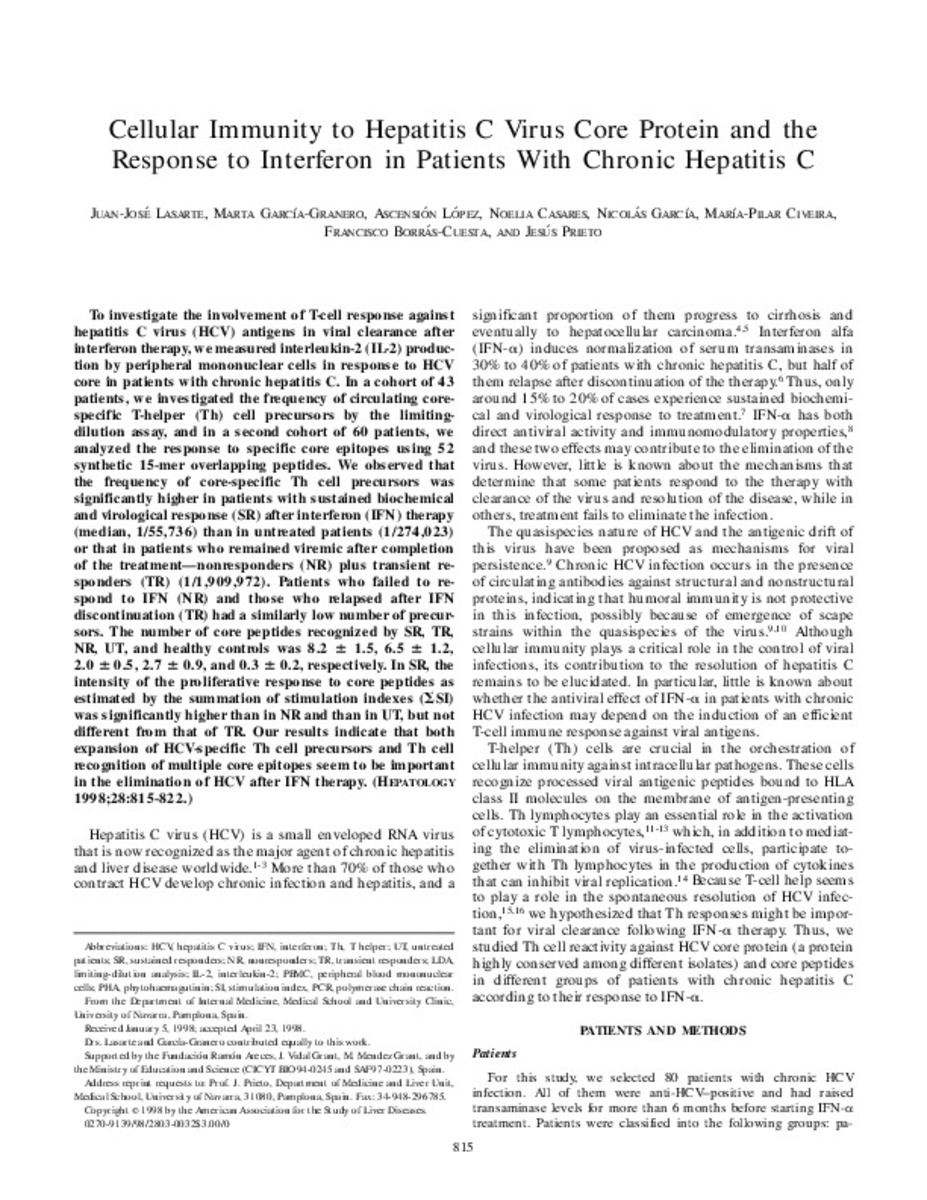Cellular immunity to hepatitis C virus core protein and the response to interferon in patients with chronic hepatitis C
Keywords:
Hepacivirus/immunology
Hepatitis C, Chronic/drug therapy
Interferon-alpha/therapeutic use
Viral Core Proteins/immunology
Publisher:
Wiley-Blackwell
Citation:
Lasarte JJ, Garcia-Granero M, Lopez A, Casares N, Garcia N, Civeira MP, et al. Cellular immunity to hepatitis C virus core protein and the response to interferon in patients with chronic hepatitis C. Hepatology 1998 Sep;28(3):815-822.
Statistics and impact
0 citas en

0 citas en

Items in Dadun are protected by copyright, with all rights reserved, unless otherwise indicated.







